Written by by Maansi Kumar ’18 and Amyaz Moledina (The College of Wooster)
Mobility Studies is an emergent interdisciplinary field that explains the dynamic relationships between the combined movement of bodies, objects, and ideas. The field emphasizes the ethical dimensions of these mobilities and their associated immobilities. As such, the field focuses on the “embodied practice of movement and their representations, ideologies and meanings attached to both movement and stillness” (Sheller 2011). The field creates a relational ontology between social concerns of inequality, power, and hierarchies, with spatial concerns – territory, borders, scales, in addition to cultural concerns of discourses, representation, and schemas. (Ibid)
Scholars of Mobility Studies acknowledge that movement is not recent or a notable feature of contemporary times. However, recent challenges from forced mobility, the movement of unpredictable risks, climate change, and environmental limits, highlight the need to accurately capture the exchanges occurring due to these movements (Sheller 2003). Since, Migration Studies, emphasizes the quantitative movement of people across political borders it excludes the dynamic relationships between the movement of people, objects, and ideas or any considerations of power or discourses. Although the definition of Migration Studies has expanded to consider whether certain movements are voluntary or involuntary, it is still unable to interrogate who and what is demobilized and remobilized across different scales and spaces and the interconnectedness of mobility and motility (Adey 2010).
In this paper we hope to show that the traditional migration studies frame is limited. It does not acknowledge the impact of history on contemporary mobility and account for the impact of migration on non-movers. We then argue that adopting the Mobility Studies frame can highlight and acknowledge the voice and experiences of those who have been historically underrepresented in migration discourses.
Defining Migration
According to the United Nations Education, Scientific and Cultural Organization (UNESCO), a migrant is defined as “any person who lives temporarily or permanently in a country where he or she was not born, and has acquired some significant social ties to this country”.1However this definition, by UNESCO’s own acknowledgement, is too narrow.2 There are multiple instances where people acquire significant social ties by moving within the boundaries of their birth state. This definition also assumes that migrants have some form of agency or control over their movement. The emphasis on economic migration dominates global discourses. In order to combat the narrow definition, the United Nations has expanded its definition by incorporating the following elements into their understanding of migration (see Figure 1):
Figure 1: United Nations classification of the different types of migration
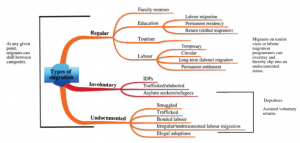
Source: The United Nations “Mobility and Migration”, Accessed May 23 2017
Although expanding the definition of migration is a step in the right direction, it still fails to account for many other factors relevant to individuals that do not belong to Western nations, or those outside of the specific socio-economic groups being targeted in this figure.
Example 1: Colonization, identity and movement
The contemporary employment-incentivized patterns of movement were established during the European colonization of Africa (Oliver 2009).3 For many nations in the Global South, migration to other parts of the continent still continue to depend on employment prospects. However, due to a dearth of reliable research, the dynamics of the interconnected patterns of migration remain poorly understood (Bakewell 2009). It is unclear if the bodies should be the focus of this pattern of movement or the historical flows of goods between the core and periphery. The flows of objects between arbitrary colonial borders, give rise to the demand for labor in different states. The narrow definition of migration fails to acknowledge the impact of history on contemporary mobility. For instance, a large portion of the United States African diaspora is now traveling to the African continent to reclaim their identity (Cohen 2008, Manning 2008). However, the definition of migration understands this movement as a mere number of American citizens travelling to Africa for tourism. Instead, we should shed light on the intricate cultural and historical exchange that ensues. Since Mobility Studies draws from phenomenology4 to encompass the embodied practices of movement, it allows researchers to theorize the relationship between culture, personal identity and migration patterns.
Example 2: Government Policy, Legal Status and Movement
The UNESCO definition of migration also fails to define the status of a large population refugees who have found a permanent way of living within their host countries, despite government policies. For example, in Nairobi, exiled Somalis have established a significant residential and business district in the city (Lindley 2007). Similarly, millions of Afghan refugees first came to North-West Pakistan in the 1980s and have become integrated into the social, economic and political life of the area. Such historical movements have permanently changed the cross-border patterns of mobility for these regions (Blakewell 2009). However, these significant migratory patterns were never studied in relation to the long-term impact due to the lack of framework to do so.
Once again alluding to embodiment and practice of movements, Mobility Studies uses knowledge of the relevant cultural setting, historical background, and political climate to account for movement and non-movement. This field creates a relational ontology between the the social concerns of inequality, power, and hierarchies, with spatial concerns – territory, borders, scales and the cultural concerns of discourses, representation, and schemas.
Defining Mobility Studies
Migration Studies is an academic framework that explains the processes, motivations and consequent impact of human movement. While Migration can be rudimentarily defined as movement of people across borders, Mobility Studies broadens the discourse to include the relational dynamics between people, objects and ideas that are all mobile.
Mobility examines the processes, structure, and consequences of the movement of people, resources, commodities, and ideas. It involves research on the combined movements of people, objects and information in all of their complex relational dynamics (Sheller 2013).
Mobilities studies is concerned with not only physical movement, but also potential movement, blocked movement, immobilization, dwelling and place-making (Buscher and Urry, 2009). One does not have to be physically mobile or have their body displaced in order to be affected by migration; an individual might not be moving, but the environment around them could be changing as a result of movement. This could in-turn, affect their worldview and consequent actions and interactions with their environment.
Peter Adey, whose preliminary research contributed significantly to Mobility Studies, identifies four sets of concerns within the field (Adey, 2009).
Figure 2: Adey’s expansion on the interdisciplinary nature of Mobility Studies

Source: Peter Adey “The Routledge Handbook of Mobilities”, figure created by Maansi Kumar ’18, Source accessed 21 May 2017
Adey argues that Mobility Studies is an umbrella term that actually encompasses multiple ways of knowing to derive a holistic understanding of movement. Using such an interdisciplinary approach, the migration of a Cameroonian individual to France should be placed in a historical context. The lens of Mobility Studies informs the audience that because Cameroon was colonized by the French, Cameroonians would be more likely to migrate to France due to familiarity with language, educational system and culture (Terretta 2017). We could then transition to explaining how such discourses are internalized by Cameroonians or the objects and ideas that transit between these spaces. Walter Nkwi studies the convergence zones of Kom in Cameroon, their customary practices, the apparatus of “newness” from schools and cars to technological advances (Nkwi 2015). Nkwi also focuses on extending scholarship about experiences of indigenous “belonging” and diasporic identity within these communities. He illustrates how these terminologies were conceived and perceived by the Kom people in their social and physical mobilities.
Example 3: Connecting Gender, Movement, and Employment
Recently, the “care-drain”, women migrating from low-to high income countries, has received significant feminist attention. Feminists raise important issues like: who is the primary caregiver in the household of the woman while she works in other people’s houses in the West? Who are the individuals taking care of her children while she is away? What is the consequent impact on the identity, education and health care of her children, given that she is unable to spend time being physically around them?
Mobility Studies would first want to recognize that the “care-drain” is not an international issue. It has existed for centuries on local scales. Consider the case of female domestic workers in India. There are approximately 4.2 million domestic workers in urban India, most of them from rural communities (WEIGO). While we can study the forces that give rise to this movement, we must also address the abuse and exploitation of these workers at different scales (Reshmi 2011). Mobility Studies accounts for those issues, as well as the long-term impact on the communities experiencing this movement. Understanding “care movements” broadly can be used to advocate for better legal protection of domestic workers, within and between countries.
Mobility studies argues that a person’s agency and the ‘agencement’ of the world is not simply at the bodily level of personal interactions with spatial affordances, it is also very much concerned with larger scales of spatial production, urban form and infrastructural systems (Adey, 2013). We need a far more nuanced view of border-crossings towards the study of ‘emotional geographies’.
Migration Studies: Expanding the Existing Literature
Having outlined a few key differences between migration and mobility studies, it is apparent that mobility studies has a much more inclusive framework for representing historically understudied patterns of movement. It provides a language to account for postcolonial trends of migration and movement. As we read the existing literature on Mobility Studies, there are three themes that stand out as the most significant turning points to study movement and mobility. Namely, these are: the concept of temporality, inclusion of feminist critiques of migration, and the Global South perspective.
Mobility Studies and Immobility
As mentioned earlier, Mobility Studies acknowledges that a person does not have to be physically moving to be affected by migration. Mobility Studies opens up avenues to study spatial and temporal movement. The concepts of temporalities of movements and stillness are connected with a larger-scale geography of movement and hence, human navigation (Sheller 2009; Dant 2004, Jensen 2010, Merleau-Ponty 1962). By focusing on stillness, Mobility Studies explores immobility and how movement affects those who are physically immobile at a given point in time. Immobility encompasses mobility in ways pertaining to infrastructure, motility and regimes of mobility (Salazar 2016).
Korpela discusses infrastructure from three angles: the moment of becoming mobile, the time of being mobile, and becoming immobile again (Ibid). Ultimately, this sets up the argument that mobility occurs within the existing infrastructure of each nation-state. This also raises the question of whether there are infrastructures of mobility that function outside of a nation-state’s control. Motility refers to an individual’s potential to move. Studying motility is useful in locations of temporality where mobility appears yet-to-be-realized, yet-to-be-completed or might-never-happen (Hoyer 2016). An instance of this would be a child from a rural community whose mother has migrated to another country, due ‘Care drain’. This child might be more likely to travel themself. If the mother is educated and can support the child, their current state of immobility is not an indicator of their future immobility. Finally, regimes of mobility identify the ways in which (legal) systems regulate mobility. Related approaches reveal the ways in which institutions, technology, ideologies and identities are constructed in relation to mobility. Baker applies this to ethnographic work with undocumented youth to highlight the importance of listening to the immobile rather than idealizing mobility (Salazar 2016). By doing so, Mobility Studies capture the experiences of those without legal documentation to determine whether or not integration into particular societies is even what they desire to begin with, and thereby, better accommodating their needs.
Mobility Studies and Feminist Critiques
Mobility Studies theory incorporates feminist critiques of nomadic theory, pointing out that even contemporarily, migration and movement is grounded in masculine subjectivities (Sheller 2009). This implies that freedom of movement is limited by the gendered production of space, something that migration studies has failed to account for.
An example of this would be the case of structural violence against Syrian women within refugee communities. While migration studies highlights the sheer numbers of Syrian refugees that are clearly displaced, seeking shelter, and even presents the break-up between women, men and children within refugee camps, it does not shed light on the gendered impact of this trauma on Syrian women nor does it explore the different meanings of “shelter” and sanctuary.
Mobility Studies and the Global South
About 45 percent of total migrants in the world move between South-South nations (Baker 2009). It is absolutely imperative to study these relationships using the voices of the movers if we are to make any claims about migration patterns. A focus on the Global South, independent of the Global North, is necessary not just because of their history of being colonized, but also because of changing structure of their economies and the routes/methods of movement.
In the Saharan zone, for instance, the recent paving and improvement of road connections have boosted trans- Saharan migration (de Haas 2008a). Beyond the more obvious connection between infrastructure and migration, we need to explore how this spatial connectivity could change the cultural discourses within the Sahara, but also the relationship between ideas and bodies. The need to focus on the Global South also has implications for future migration trends as well as gender equity and labor market accommodations (Ohnmacht 2009).
In this paper, we have highlighted the key disciplinary differences between Migration and Mobility Studies. We argue that Migration has not provided an adequate framework to study a large proportion of global movement. Mobility Studies is key to understanding the complex dynamic between the movement of bodies, objects and ideas as it is interdisciplinary and inclusive of numerous academic fields. This ultimately provides a holistic framework to better understand global movement, placing it in a broader historic, social and economic context. Mobility Studies gives us the an emergent interdisciplinary framework to unpack and radically change oppressive structures by representing nations in the Global South. Highlighting patterns of migration and movement that have always existed, Mobility Studies aims to account for them, given that the academic framework of migration studies has historically proved inadequate to do so.
Footnotes:
1. [Migration and Human Rights (2017) Council of Europe – Homepage. Web. ]↩
2. [ Migrant/Migration (2017) Migrant | United Nations Educational, Scientific and Cultural Organization (UNESCO). Web.
]↩
3. [ Bakewell, Oliver (2009) South-South Migration and Human Development: Reflections on African Experiences. UNDP: Human Development Reports Research Paper (2009/07). ]↩
4. [Phenomenology: a philosophical movement that describes the formal structure of the objects of awareness and of awareness itself in abstraction from any claims concerning existence (Merriam Webster) ]↩
Sources:
Adey, P (2009) Mobility. London and New York: Routledge.
Adey, Bissell, Hannam, Merriman and Sheller (2013) The Routledge Handbook of Mobilities. London: Routledge.
Bakewell, Oliver (2009) South-South Migration and Human Development: Reflections on African Experiences. UNDP: Human Development Reports Research Paper (2009/07).
Domestic Workers in India (2017) | Law and Informality, Women in Informal Employment: Globalizing and Organizing (WIEGO). Web.
Nkwi, Walter Gam (2015) African Modernities and Mobilities: A Historical Ethnography of Kom, Cameroon, C. 1800 – 2008. Bamenda, Cameroon: Langaa Research & Publishing Common Initiative Group
Ohnmacht, Timo and Maksim, Hanja (2009) Mobilities and Inequalities. Farnham UK: Ashgate Publishing.
Reshmi, R.S. (2009) Gendered vulnerabilities, Discrimination and Abuse among Women Migrants – A Special Reference to Return Domestic Workers in Kerala, India. Princeton: Princeton Working Papers.
Salazar. Noel B. (2016) Keywords of Mobility: Critical Engagements. New York: Berghahn Books.
Sheller, Mimi (2009) Mobility. Philadelphia: Drexel University.
Terretta, Meredith (2017) The Unfinished Business Between Cameroon and France. Politics | Africa is a Country. Web. Cameroon was also colonized by other European powers.

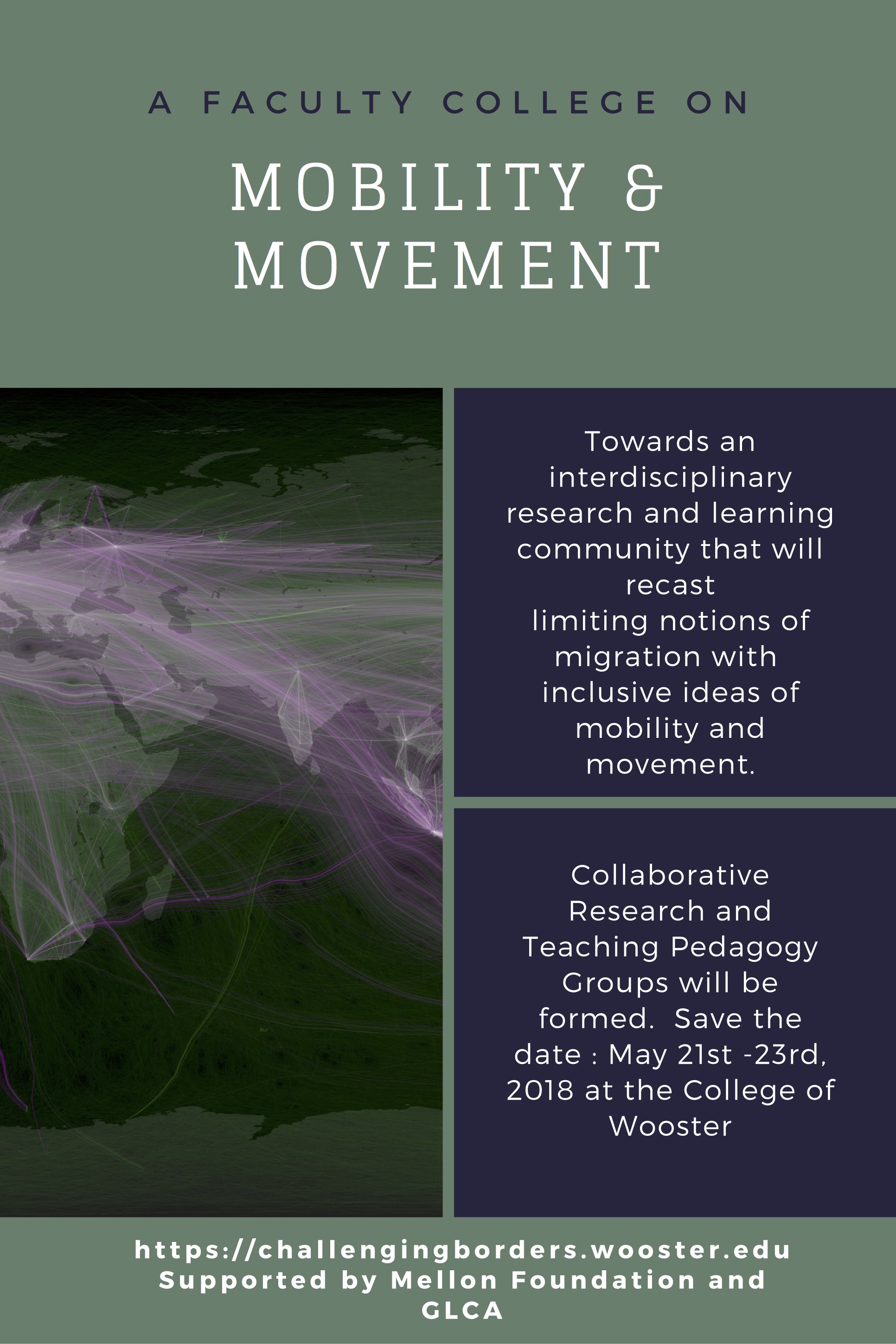

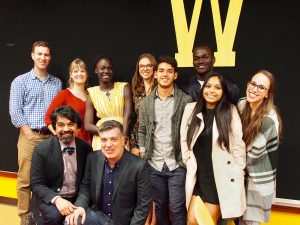
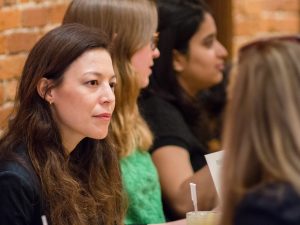
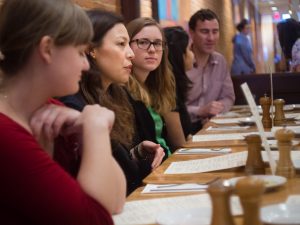
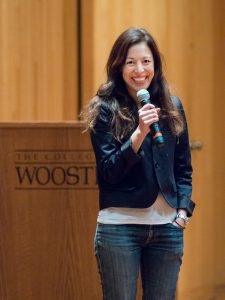
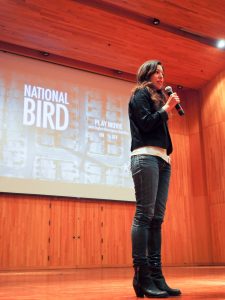
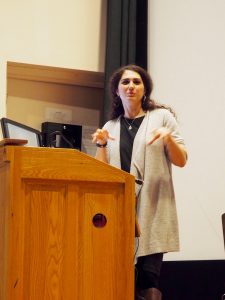
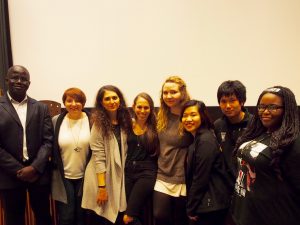
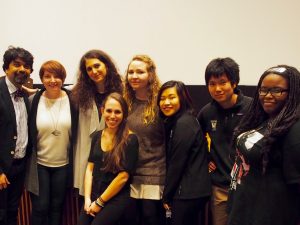
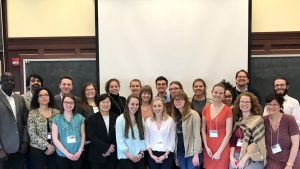
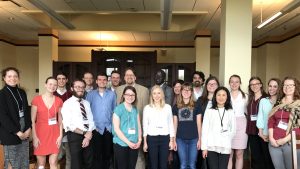
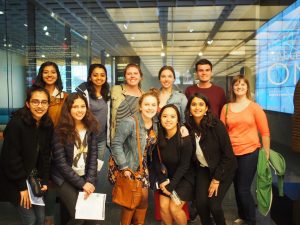
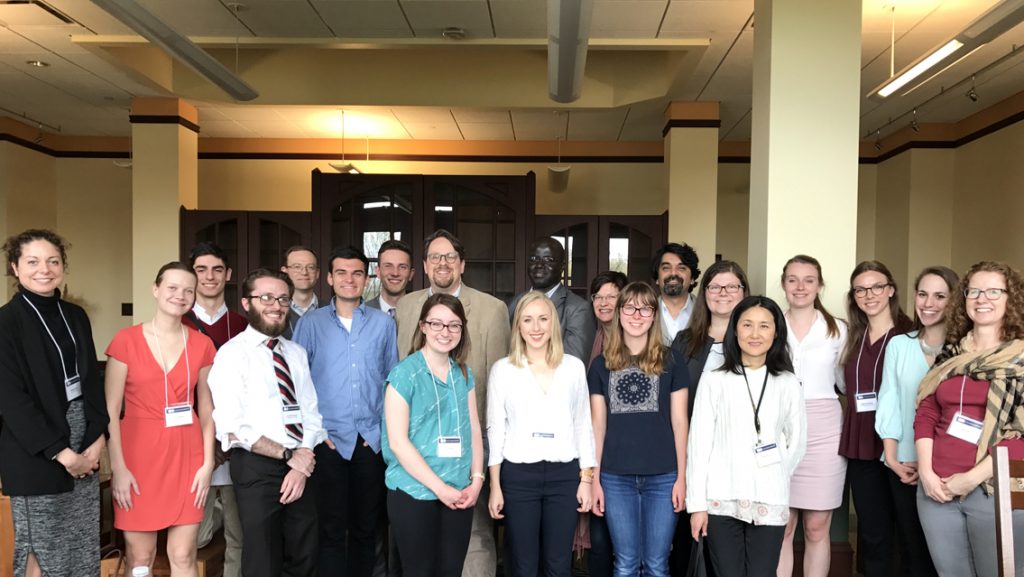
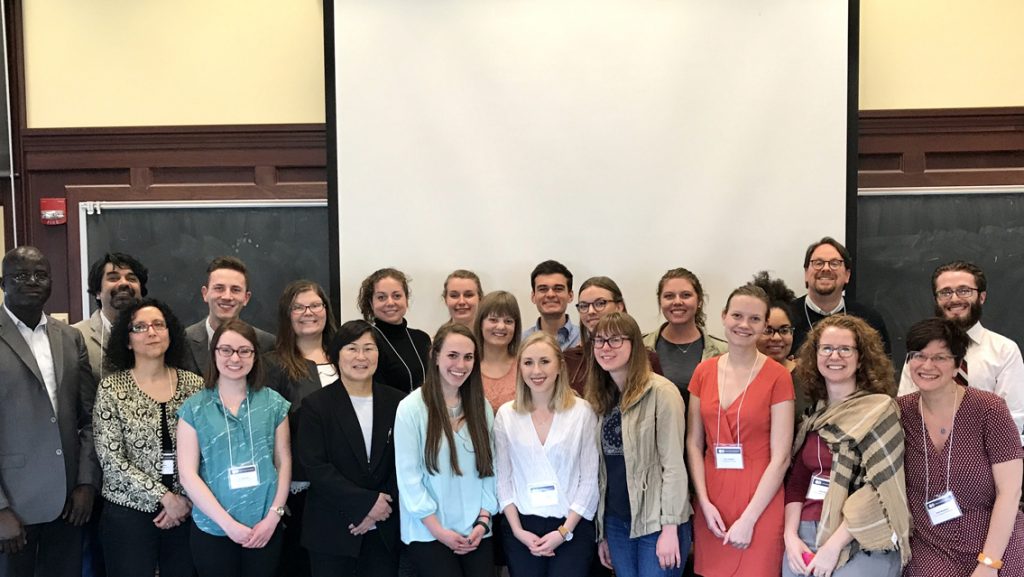
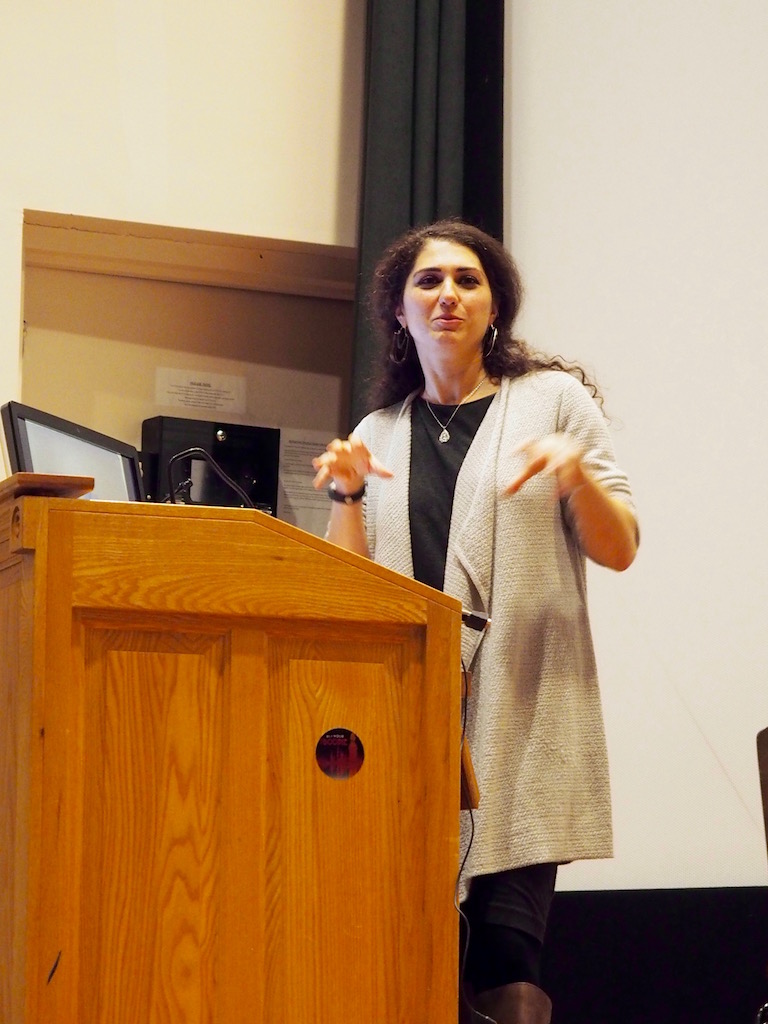
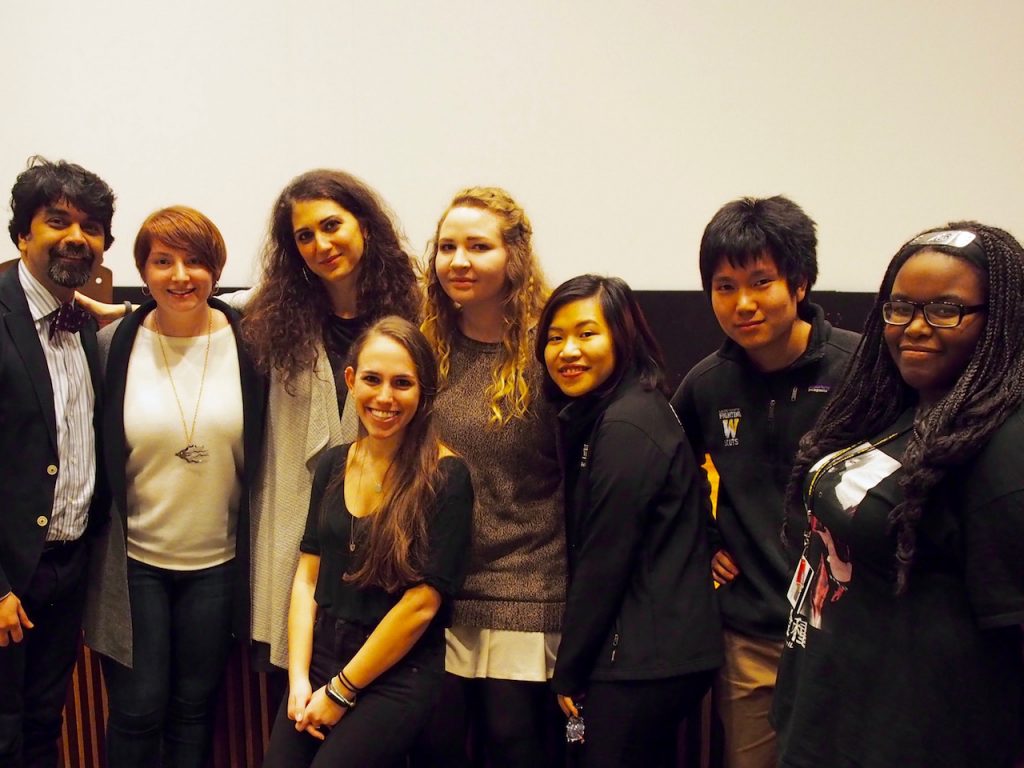
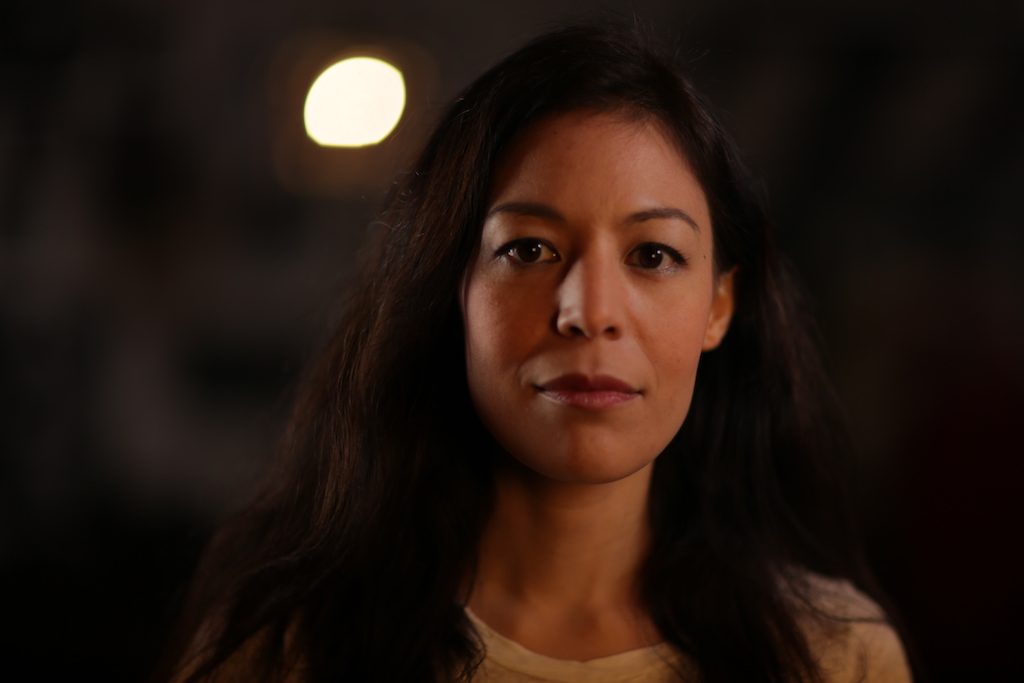 The film illuminates the impact the drone program has on people – veterans and survivors. It asks the audience to confront the human side of the drone program. In a recent article in the Guardian –
The film illuminates the impact the drone program has on people – veterans and survivors. It asks the audience to confront the human side of the drone program. In a recent article in the Guardian –